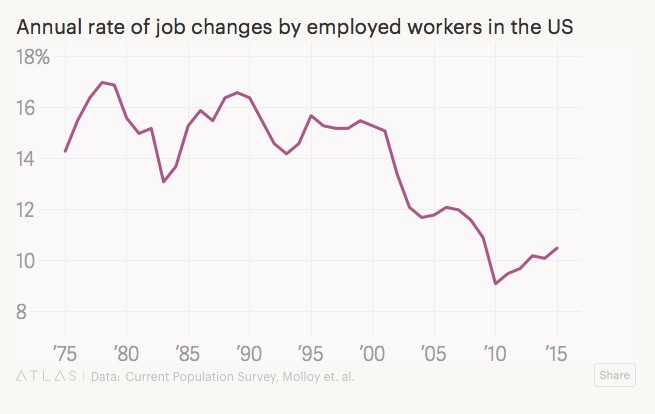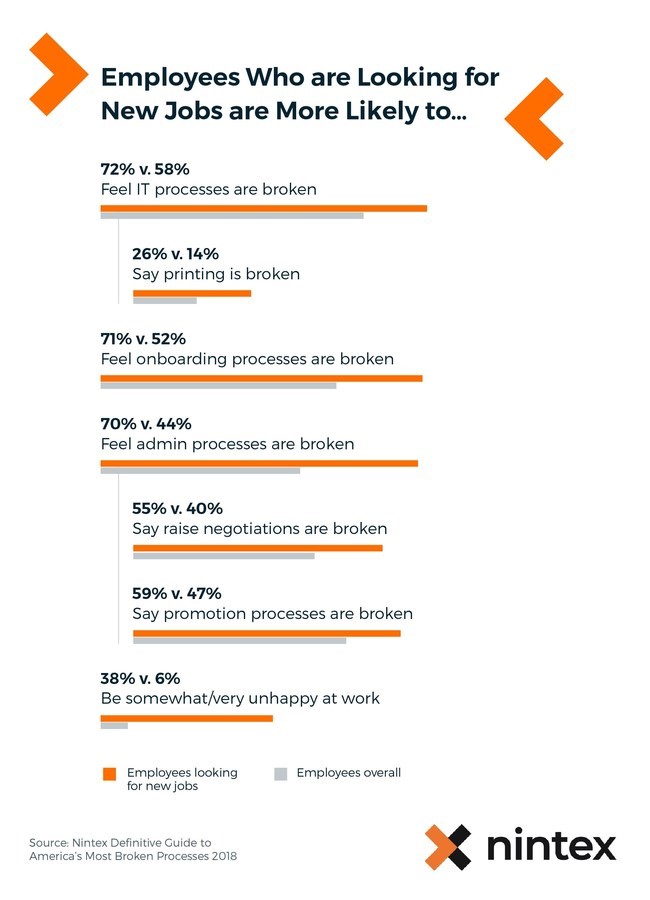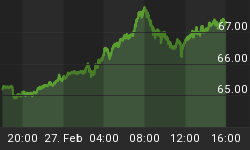Is it a sign of economic high times when there are more jobs than there are U.S. workers who are interested in filling them? And when Americans are quitting their jobs at the fastest pace in 17 years?
Yes and no.
But for now, everyone’s talking about the economy, with pundits pointing to the fact that this is the first year in American history that there are more jobs than there are job-seekers (at a time when the country undergoes a massive anti-immigration push).
According to the Bureau of Labor Statistics, there are 6.7 million job openings in the U.S., compared to 6.35 million unemployed people. That’s never happened before—at least for as long as the Bureau has been collecting data.
But it’s the rate at which Americans are willing to leave their jobs that may bring the economic picture into sharper focus—or at least the perceived picture.
Americans aren’t quitting their jobs because they don’t feel they need to work anymore. They’re job-hopping, which is always an indication of economic optimism. When economies are flourishing, workers feel emboldened to seek better employment. When economies are troubled, they tend to find security in staying put—just in case.
When the economy looks good, workers feel that they needn’t put up with boredom, and that there’s no reason to settle for a job that isn’t their ideal.
According to Quartz, citing estimates from the Kansas City Fed, people who move jobs end up getting, on average, a 6-percent pay increase because they’re taking the time to find a company that will put their skills to better use.
“Wage growth is often cited as an important gauge for the labor market’s strength,” according to the Kansas City Fed. “For contractual reasons, however, wages of workers who stay in the same job (‘stayers’) are unlikely to vary much from month to month. Since the workforce is disproportionately composed of stayers, aggregate measures of wage growth may understate the cyclical behavior of the labor market.”
Likewise, as the labor market continues to recover and the quit rate continues to rise, the wage gains of job-hoppers should rise even further as a result of competitive pressures.
But as Quartz points out, even though job-hopping looks better than it has in 17 years, it’s still nothing compared to what it used to be because the U.S. labor market is still “far less dynamic”. Related: Tesla’s Model 3 Backlog At 420,000 Orders
That’s because fewer jobs are being created annually, and few jobs are likely to disappear, while people have been staying at their jobs longer.
Citing a 2016 report from the Brookings Institution, Quartz said that Millennial job-hopping is a myth and that even this purportedly unfocussed generation is staying at jobs longer.

(Click to enlarge)
And economists, apparently, don’t really have a handle on why job-hopping isn’t a bigger thing that it is.
But a study just released by Nintex research claims that corporations are forcing an exodus of workers because of a “broken process”.
“Undefined paths for career advancement lead to poor annual reviews, preventing employees from reaching their full potential, and literally push American workers out the door”. Related: The $2 Trillion Trade War Fallout
The study found that more than half of employees at U.S. companies with more than 1,000 employees say their company does not define or follow a process for personal career advancement.

(Click to enlarge)
So while there seems to be a return of economic dynamism more closely reminiscent of the dotcom days, economists don’t seem convinced that this is strictly about the economy, or strictly about the perception that things are really good right now. A number of changing social factors and corporate failures may also be at play.
By Charles Benavidez for Safehaven.com
More Top Reads From Safehaven.com:
















